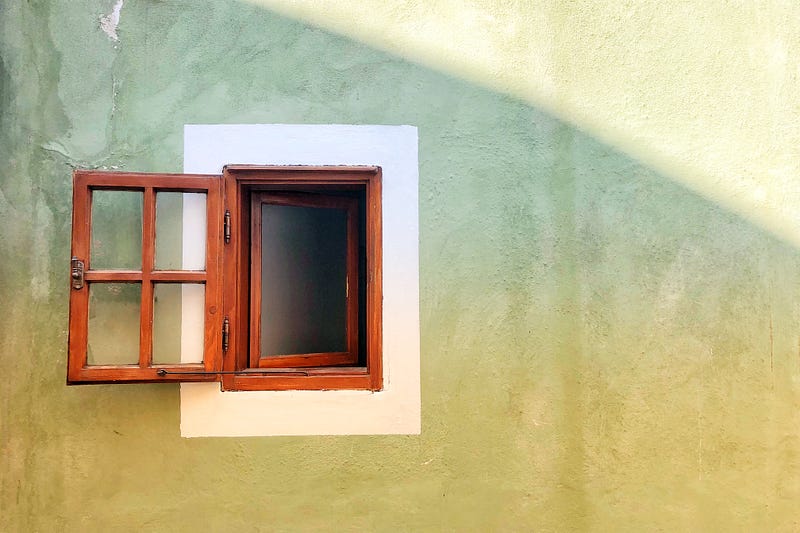The thin line of choice we face every day between us and the world

Photo by Katerina Pavlyuchkova on Unsplash
“Life is really simple, but men insist on making it complicated.”
The quote above is from Confucius. I think about it from time to time — whenever my list of things to do seems to have swelled to larger than I can manage.
I also think about it when I catch myself doom-scrolling on Twitter, or falling down Wikipedia rabbit holes, or standing in front of the open pantry, mindlessly eating most of a bag of Cool Ranch Doritos. I think about it as I sense things becoming too complicated for me.
I think about whether or not Confucius was right. Am I the problem? Or is life — is the world just really complicated?
Things Bumping Into Each Other
What goes on in the world is just the endless cascade of things bumping into each other in different ways. And then there’s we humans. We are part of the bumping, but we also have these things called desires.
We don’t simply observe the things bumping into each other. We see them, but then we form desires about them. We wish that they bump together in certain ways. We form strategies and make plans to get those things bumping into each other in just the ways we like — but not the ways we don’t.
I think about how complicated life can feel, but how it really is very simple. And even in those instances when — as Confucius reminds us —we make it complicated, the simplicity remains. It’s there for us to discover. It’s like a set of keys that we’ve dropped. They stay where we dropped them — available for us to pick them up again.
The Line of Choice
The way that life is simple is that it proceeds day by day with the same choice available to us in every moment of each and every day. We wake up in the world of things bumping into each other. We see it happen, and we have a choice.
We can choose to make or be made. We can choose appreciation and love or suffering and anger. We can choose to be okay with the ways things end up bumping into each other — come what may. Or we can choose to rail against it, feeding an ever-growing desire that things be other than they are. These choices are simple.
There is a line between us and the world. It’s the line marked by choice. We cannot choose how things play out in the world. Wars, famine, abuse, deceit, hurricanes — these things happen without our choosing them. The pain and destruction they cause is real.
But on the other side of that line is each of us. We can choose who we are — how we are. We can choose how we act. We can choose what we set in motion. When we cross that line that separates us from the world — when we choose — we make an offering.
You’re Entitled to the Labor, Not the Fruit
When we cross that line from our mind and into the world, the most we’re doing is making an offering. We’re offering up our action, our work, to the world — hoping that things turn out. Our mistake comes when we see it as anything other than an offering.
The Bhagavad Gita has a verse that (roughly) says:
Thy right is to work only, but never to its fruits
Work all you want. Plan, scheme, and push yourself all you like. But if you believe that doing so makes you entitled to certain results — you have set yourself up for strife. The things bumping into each other out there in the world don’t care how much work you put in. So they won’t simply fall in line with your sense of entitlement. And when they don’t, and you feel entitled, that’s when you suffer.
Hard work is great. It heals, it cleanses, it builds character, and it motivates and serves. When you treat your work and your life as an offering — to the world and others — you free yourself from the bondage of entitlement.
Your work and your effort is you making yourself, and offering yourself up. It’s self-craft — the highest kind of craft. You do it not for the results, but for the sake of the work itself. And you offer it up.
“How Are You?”
When someone asks us “how are you?” — we so often fail to see that for what it really is: An invitation. It’s an invitation to make up your own answer in real time.
We hear “how are you?” and we think we’re being asked to observe and report on the past. We think it’s a simple matter of looking at the events of your day and how they’ve made you feel, then reporting back. But no — “how are you?” — that’s an invitation to answer by acting. I’m great! You can say. And you can mean it. And you can make it so. Because you are great. You may not feel great, but great people don’t always feel great. In fact, greatness comes from being able to consistently deal with feeling not great.
We can choose to make ourselves happy, make ourselves useful, make ourselves at ease. But it doesn’t happen by magic. It takes work. It takes choice — day after day. Choose to make yourself into what you will be, rather than be made into something else.